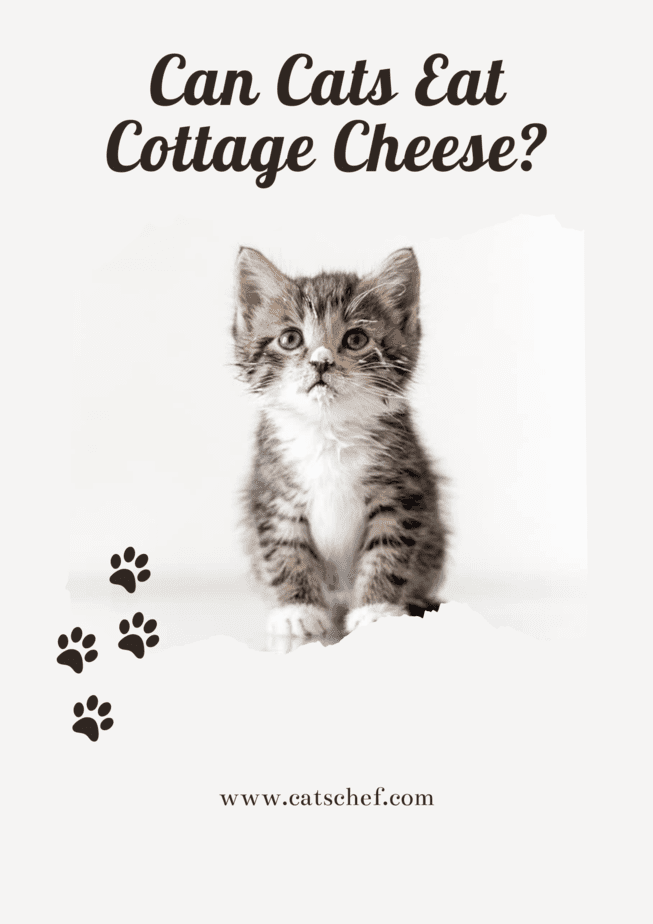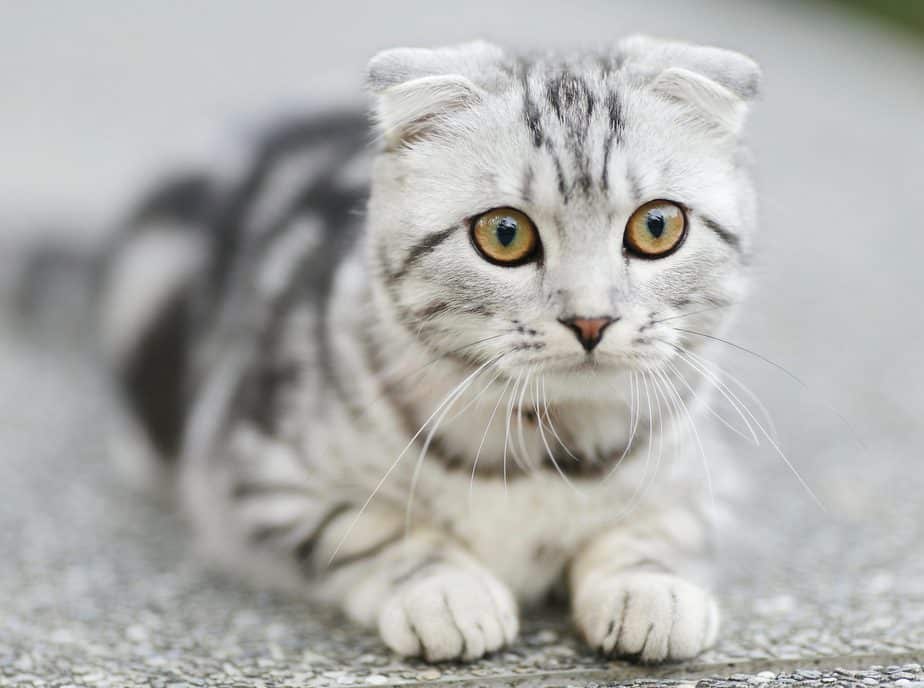Whenever you’re preparing a salad or a sandwich, you can’t skimp on the cottage cheese. There’s enough for everybody, even your kitto! He seems curious about it but you’re not sure if you’re allowed to share it with him. Can cats eat cottage cheese? Let’s take a look!
Cats are obligate carnivores that survive exclusively on meat. They might indulge in other treats sometimes, but they still get most of their nutrition from the muscles and organs of other animals.
Meat-based proteins, and chemicals such as taurine, are crucial for their health and development. That’s why cats can’t thrive without it.
Domestic cats come from their wild ancestors who used to hunt animals in the wilderness. Muscles of these animals contained high levels of amino acids that were vital for the survival of cats.
At that point, the only source of plant nutrients was the processed amount of fruits and vegetables from their prey’s digestive system(s). That’s why, over time, cats developed the ability to digest these processed veggies from their prey’s stomach.
However, when cats were domesticated, they lost the liver enzymes needed to digest plants. Their digestive systems became shorter and tailored to process protein.
As a result, cats can’t process plants and fat as well as they used to. That’s why their diet is based mostly on meat.
But what about digesting cheese? Can cats eat cottage cheese or is it the type of food they should stay away from?
To get a better understanding of this delicious dairy product, we first need to know what the cheese is made of.
Can cats eat cottage cheese since it’s a dairy product?
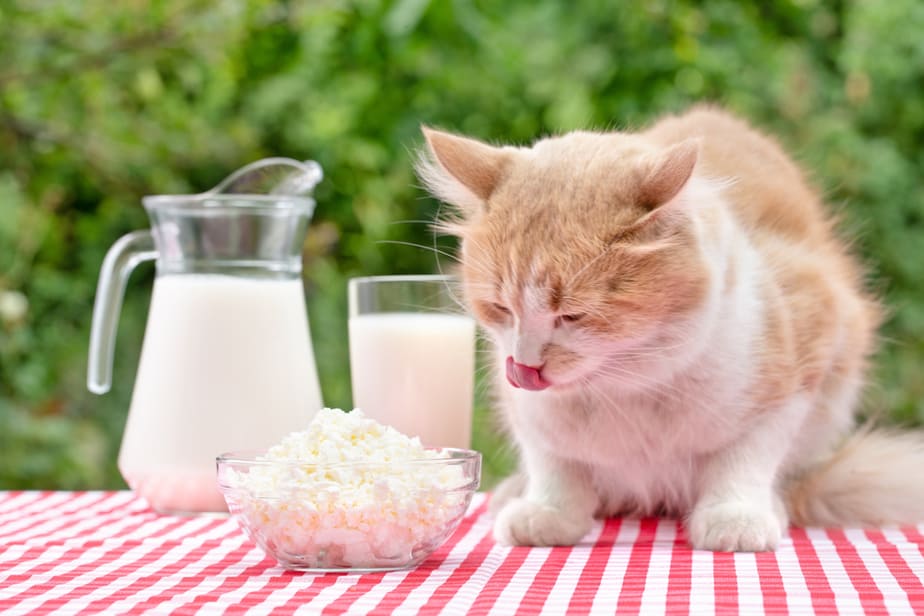
We do get cheese from animal milk, but it doesn’t contain the amino acids found in meat. However, there are still high levels of protein in it, just not necessarily the ones our pets need.
Cheese is also high in fat, which isn’t desirable for cats. They can’t process it well enough and will store any extra amount, leading to obesity. This is a serious health problem that takes a toll on your cat’s joints, so make sure not to overdo it with cheese.
Cats also lack the enzyme lactase and therefore find milk, sour cream, or other dairy products hard to digest. If your feline consumes a significant amount of it, he can experience symptoms such as diarrhea, vomiting, and stomach aches.
Fortunately, cottage cheese falls among the cheeses containing the least amount of lactose. Whey, a liquid that contains high levels of lactose, is mostly removed in the production process.
That’s why cottage cheese is easier to digest for your feline. You can offer it as a treat but it shouldn’t replace the main ingredients of his meat-based diet.
Cottage cheese also contains high levels of calcium. This element ensures strong, healthy teeth and bones. What more could you ask for?
How much cottage cheese can cats eat?
Cats are extremely curious about food and will bother you when cooking. They will want you to give them a piece of food you’re preparing just so they can try it.
If your cat has a well-balanced diet, and you don’t want to spoil his curiosity, feel free to give him a spoon of cottage cheese. This type of cheese is low in fat and it shouldn’t be a threat to your cat’s health if consumed occasionally and in small portions.
Even cat parents love to treat themselves with a type of food that’s not the best for them. As long as it doesn’t repeat on a daily basis, you’re good.
The same goes for our furry little friends – cottage cheese isn’t poisonous for them but has no real nutritional value. A spoonful or two here and there is fine as a treat but that’s about it.
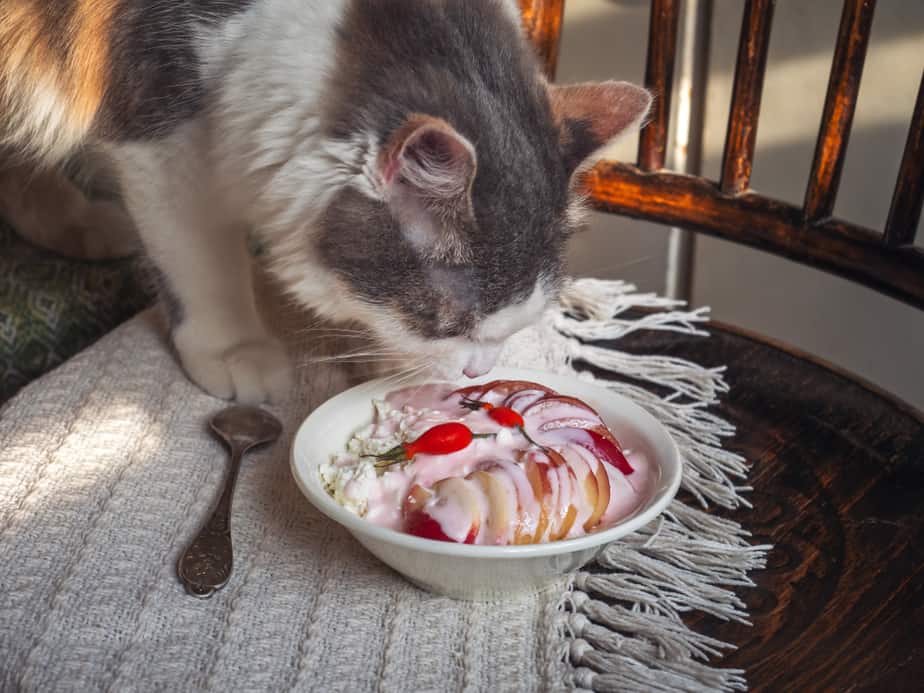
What types of cheese are safe for my cat?
There are different types of cheese, with all sorts of ingredients. Therefore, it’s good to know whether some of them are harmful to your feline.
Every cheese is made of basically the same ingredients: milk, enzymes, salt, and cheese cultures. Still, some of them are higher in fat and salt which doesn’t make them suitable for your pet.
Soft cheeses like mozzarella and brie should be kept far away from your pet. They can contain salmonella which could cause your cat many health issues.
Avoid American and feta cheese since they’re high in salt and preservatives. High sodium levels can cause dehydration, and you know how hard it is to get your cat to drink enough water.
Blue cheese is also a no-no. Besides the high levels of preservatives, it contains a type of mold that can be toxic to cats the same way it’s toxic to humans.
On the other hand, cheeses like cheddar and swiss are safer for your cat as they contain less lactose. But still, make sure to keep your cat’s cheese portions small if you don’t want to upset his stomach.
What about vegan cheese?
When you think about it, vegan cheese contains no lactose and that seems to be the main issue cats have with cheese and dairy products in general. Having that in mind, you may think that feeding your cat with this vegan option is the way to go.
However, the answer is a resounding no! Even though it lacks lactose, this cheese is still full of salt and fat, and therefore must be avoided. Any cheese that is highly processed like vegan cheese is a big no-no!
Can kittens eat cottage cheese?
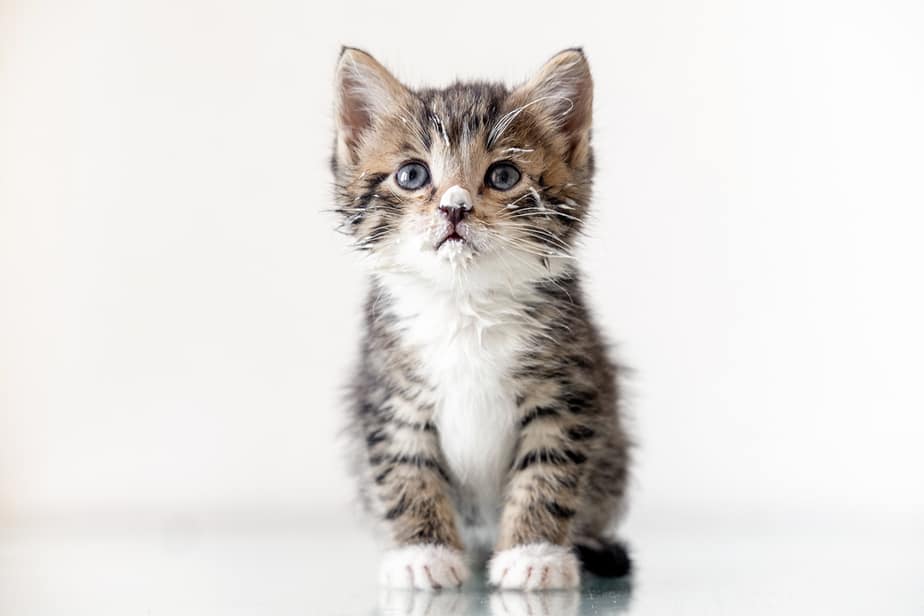
You might see little kittens drink milk and wonder how’s that possible? It’s an interesting question because cats, as we’ve mentioned, can’t easily process dairy.
Cats are mammals and small kittens must drink their mother’s milk to grow steadily. Being the amazing creatures they are, kittens produce the needed enzymes to digest milk during this period.
As they mature, they start losing lactase, and eventually become lactose intolerant. From that point on, feeding them dairy food, including cottage cheese, stops being the best choice.
Once they’re ready to eat solids, feel free to introduce meat protein into their diet. This will help them grow and develop properly.
Can pregnant cats eat cottage cheese?
It’s safe for pregnant cats to eat cottage cheese and can benefit the kittens in her stomach as well. Additional calcium intake from this cheese helps kittens grow strong and develop properly.
However, it’s very important to take care of the daily calories and fat intake. It’s best to limit these when the cat’s pregnant.
A small amount of cottage cheese as a treat is perfectly fine but don’t overdo it. Less is more and in this case, it’s the only truth.
The final verdict
Let’s repeat things one more time just so we’re sure that the message got across.
Person A: “Can cats eat cottage cheese?”
Person B: ” Well, it isn’t the best choice for your cat as it has no nutritional value. It definitely shouldn’t become a regular part of his diet. But if you have a healthy, full-grown cat, it certainly won’t harm him if he takes a bite or two from time to time.”
Related post: Can Cats Eat Butter? This Article Doesn’t Stutter!
